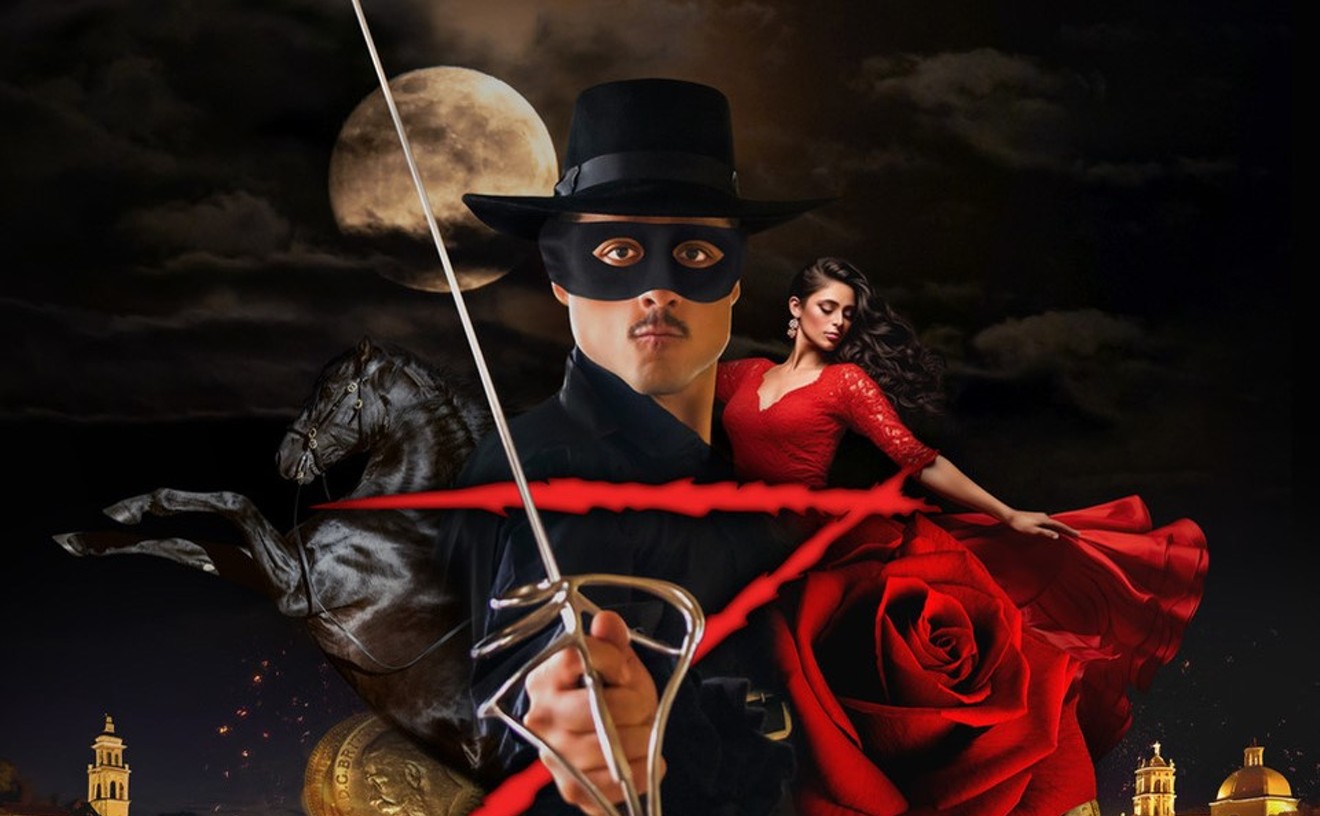The debut production of The Ensemble Theatre at Scottsdale Center for the Arts is Israel Horovitz's absurdist comedy of manners Line, which has been playing intermittently in New York since 1967 and continuously since 1975. Because this historic run occurs off-off-Broadway at a tiny theatre on 13th Street, you won't find it in any of the record books, which recognize only "professional" work. What clearly demonstrates the arbitrary nature of these lines of demarcation is that the original cast of Line starred Richard Dreyfuss, Barnard Hughes, Ann Wedgeworth and the late John Cazale (of The Godfather fame), who won an Obie Award for his performance. The line between amateur and professional is illusory, depending on the talent involved. In this instance, the lineup of talent is impressive indeed.
Absurdist theatre probably peaked with Eugene Ionesco's The Chairs or Samuel Beckett's Waiting for Godot in 1952, but absurdism continued to influence many of our most important contemporary dramatists. Chief among these are Edward Albee, whose A Delicate Balance, currently enjoying a splendid revival on Broadway, is tinged with the edge of absurdity around its realistic trappings. Harold Pinter is likewise the beneficiary of Ionesco and Beckett, and many of his plays hint at an ominous threat, no matter how abstract, that is as palpable as a heartbeat. Both Sam Shepard and David Mamet continue to find absurdity in the contemporary experience.
Heavily influenced by the masters of the absurd, Israel Horovitz mined the form for surprising and entertaining insights in Line. The action is simple and focused. The repercussions are profound and hilarious.
As the audience enters, a man stands alone on a bare stage. He waits patiently for the audience to be seated and for the lights to come up. He continues waiting, but his occasional glances down to his feet draw our attention to a white line etched onto the black stage. As he waits, he seems to practice various mental gymnastics. We begin to fantasize with him that this white tape may be the starting line for some athletic competition.
After a while, the man removes a banana from his duffel bag and proceeds to devour it (a metaphor plagiarized from Beckett's Krapp's Last Tape), and we are amused to recognize how the ordinary trials and triumphs of existence are magnified by the act of waiting. Our man (endearingly incarnated by Vining) is so fatuously content we begin to feel sure disaster impends.
Disaster arrives in the person of Stephen (played with maniacal good spirit by Tim Hart), who comes to join the man in the line. As they verbally jockey for position, we learn that our man is named Fleming, and he has arrived here 12 hours before in order to be first in line. The implication is that he is here for a baseball game, and he frequently whistles to himself "Take me out to the ball game."
Before long, the interloper has tricked Fleming into relinquishing his place at the head of the line, and the very reason for the line becomes increasingly ambiguous. By the time they are joined by a passionate woman named Molly (played with a quiet desperation by Kay Kirby), we begin to suspect that each character may covet first place in this line for different objectives.
A macho dude named Dolan (played with seething intensity by Mike Prindiville) muscles his way into the line, and finally Molly's husband, Arnall (given a frustrated vitality by Jon Simpson), bustles in late for their rendezvous, separated in the line by the times of their arrival.
While the lines of dialogue are succinct and pithy, none is truly memorable. The lines of character, however, are sharply etched as recognizable prototypes, without crossing the line into cliche.
The ensuing plot line contains vigorous battles of wit, subterfuge, deceit, and finally physical violence, as each individual jousts for pre-eminence. It is a Darwinian exercise of social and psychological implication, both cheerfully amusing and dimly disturbing.
Not all of the dark aspects are intended by the author. The line between political correctness and obtuse sexism is one that has moved steadily forward since the play's genesis nearly 30 years ago.
The author has used the sexual favors of the promiscuous wife as a principal plot device in distracting the men from their struggle for primacy. Even though these sexual favors are metaphoric, depicted as nothing more than dancing with a variety of partners, the blatant sexism of the creator is cruelly exposed by our changing perceptions. It would be pointless to insist that Horovitz be sexually enlightened before the women's liberation movement succeeded in shaming men into the recognition of how degrading the masculine view of women was. It is, I hope, an embarrassment to the author that time has exposed his prejudice so blatantly.
It is, however, legitimate to caution the creators of this new enterprise that works degrading women will not be tolerated in our more enlightened cultural climate.
Line has many worthy aspects that make it a welcome addition to the local repertoire, even though it is as sociologically dated as The Taming of the Shrew or The Merchant of Venice, to mention two plays that present historically outdated views that trouble a contemporary audience. There must be room for such plays, but I hope The Ensemble Theatre will be sensitive to contemporary relevance in its choice of future material. Meanwhile, director Vining has coached his actors to toe the line to perfection. We can celebrate the excellence to which the company aspires, and to which it has risen so strikingly in this delightful debut. May it enjoy a long line of hits!
--Marshall W. Mason
The Ensemble Theatre's production of Line continues through Sunday, June 30, at Scottsdale Center for the Arts, 7380 East Second Street.










